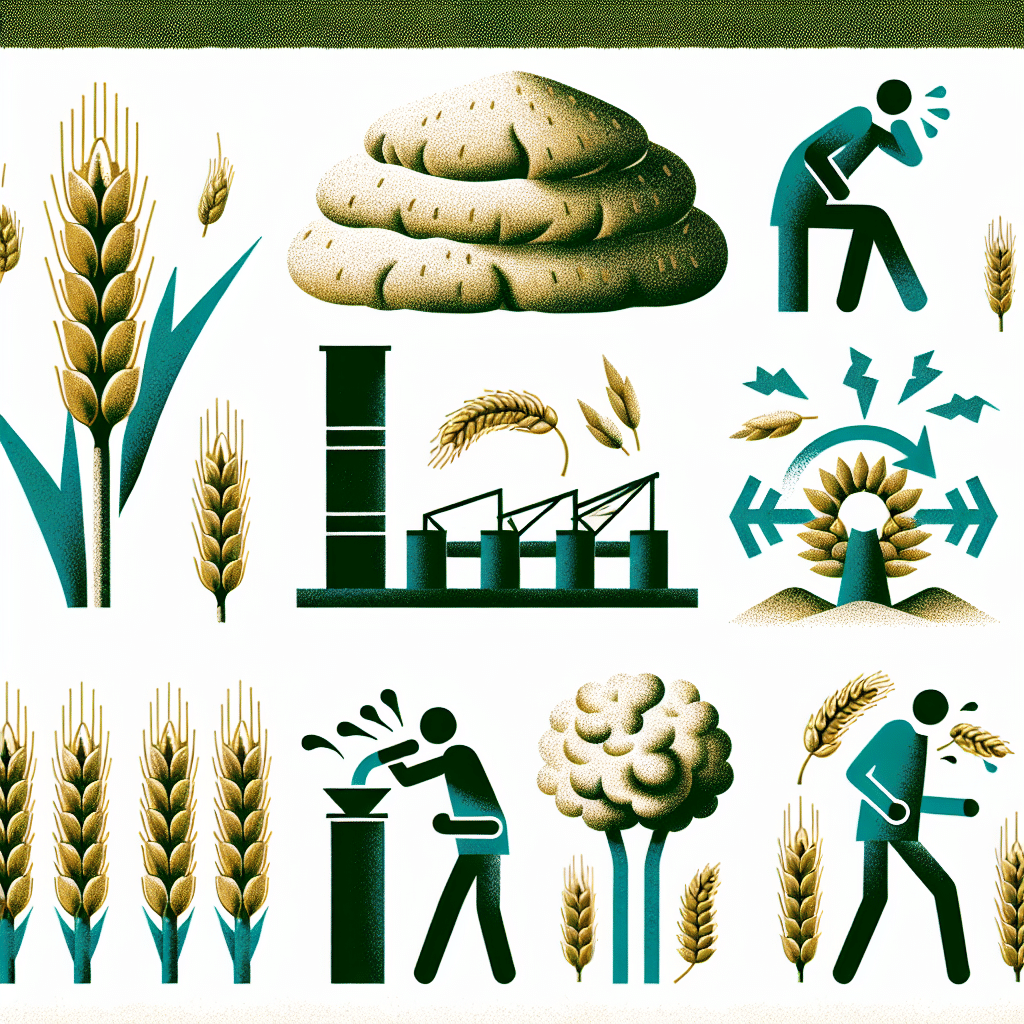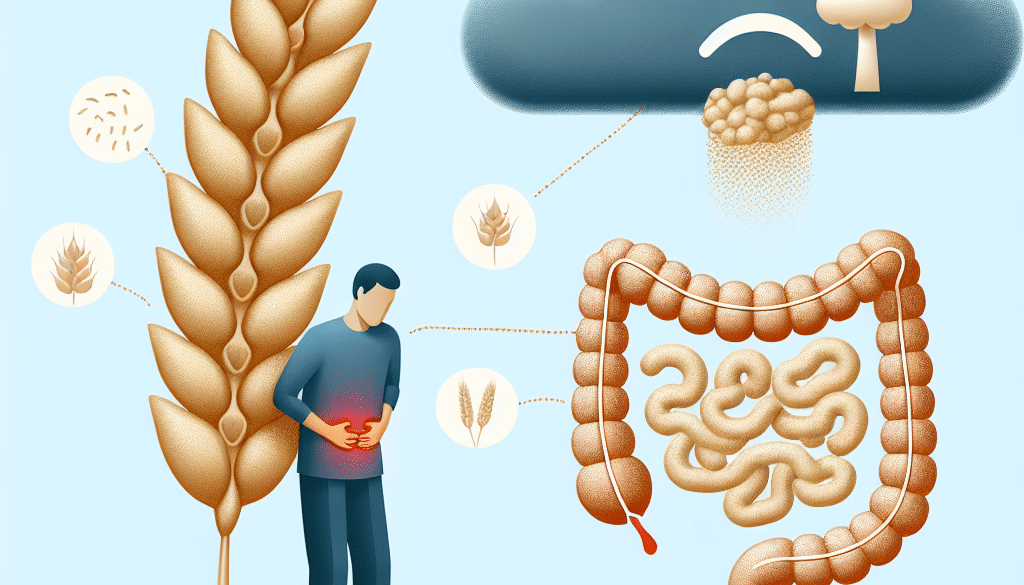What Are The Side Effects Of Too Much Barley?
-
Table of Contents
- Understanding the Side Effects of Excessive Barley Consumption
- Potential Digestive Issues
- Interference with Nutrient Absorption
- Gluten-Related Concerns
- Weight Gain and Caloric Intake
- Allergic Reactions
- Impact on Blood Sugar Levels
- Conclusion: Moderation is Key
- Discover ETprotein’s High-Quality Protein Products
Understanding the Side Effects of Excessive Barley Consumption

Barley is a whole grain that is commonly consumed in various forms, from soups and stews to bread and beverages. It is packed with essential nutrients, including fiber, vitamins, and minerals, which contribute to its health benefits. However, as with any food, consuming barley in excessive amounts can lead to side effects that may impact one’s health. This article explores the potential adverse effects of too much barley and provides insights into maintaining a balanced diet.
Potential Digestive Issues
Barley is rich in dietary fiber, which is beneficial for digestive health. However, consuming large quantities of fiber can lead to digestive discomfort. Here are some digestive issues that may arise from excessive barley intake:
- Bloating and Gas: The high fiber content in barley can cause bloating and gas, especially if your body is not accustomed to such amounts of fiber.
- Diarrhea or Constipation: Overconsumption of barley can lead to diarrhea due to its laxative effect. Conversely, if not consumed with adequate water, it can cause constipation.
Interference with Nutrient Absorption
Barley contains phytic acid, a substance that can bind minerals and reduce their absorption in the body. Excessive intake of barley may lead to:
- Mineral Deficiencies: Phytic acid can interfere with the absorption of minerals such as iron, zinc, and calcium, potentially leading to deficiencies.
Gluten-Related Concerns
Barley contains gluten, which can be problematic for individuals with celiac disease or gluten sensitivity. The side effects for these individuals can be severe and include:
- Intestinal Damage: For those with celiac disease, consuming barley can cause damage to the lining of the small intestine.
- Systemic Symptoms: Gluten ingestion in sensitive individuals can lead to symptoms such as fatigue, headaches, and skin rashes.
Weight Gain and Caloric Intake
While barley is a nutritious food, it is also calorie-dense. Excessive consumption without proper portion control can contribute to:
- Increased Caloric Intake: Overeating barley can lead to an excessive caloric intake, which may result in weight gain.
Allergic Reactions
Though rare, some individuals may have an allergy to barley. Symptoms of a barley allergy can include:
- Skin Reactions: Hives, itching, or eczema can occur in those allergic to barley.
- Respiratory Issues: Barley allergy can cause asthma-like symptoms, such as wheezing and difficulty breathing.
- Anaphylaxis: In severe cases, a barley allergy can lead to anaphylaxis, a life-threatening reaction that requires immediate medical attention.
Impact on Blood Sugar Levels
Barley has a low glycemic index, which means it does not cause rapid spikes in blood sugar levels. However, consuming large amounts of barley, especially in processed forms, can still impact blood sugar control:
- Hyperglycemia: Overindulgence in barley-based foods can lead to elevated blood sugar levels, particularly in individuals with diabetes.
Conclusion: Moderation is Key
Barley is a nutritious grain that offers numerous health benefits when consumed as part of a balanced diet. However, excessive intake can lead to side effects such as digestive discomfort, nutrient deficiencies, gluten-related issues, weight gain, allergic reactions, and blood sugar imbalances. It is important to enjoy barley in moderation and be mindful of individual dietary needs and restrictions.
Discover ETprotein’s High-Quality Protein Products
If you’re looking to diversify your protein sources while managing your barley intake, ETprotein offers a range of organic bulk vegan proteins that can complement your diet. Their products are non-GMO, allergen-free, and come with a neutral taste, making them an excellent addition to various meals and snacks. Whether you’re interested in rice protein, pea protein, or other plant-based options, ETprotein has you covered.
About ETprotein:
ETprotein, a reputable protein and L-(+)-Ergothioneine (EGT) Chinese factory manufacturer and supplier, is renowned for producing, stocking, exporting, and delivering the highest quality organic bulk vegan proteins and L-(+)-Ergothioneine. They include Organic rice protein, clear rice protein, pea protein, clear pea protein, watermelon seed protein, pumpkin seed protein, sunflower seed protein, mung bean protein, peanut protein, and L-(+)-Ergothioneine EGT Pharmaceutical grade, L-(+)-Ergothioneine EGT food grade, L-(+)-Ergothioneine EGT cosmetic grade, L-(+)-Ergothioneine EGT reference grade and L-(+)-Ergothioneine EGT standard. Their offerings, characterized by a neutral taste, non-GMO, allergen-free attributes, with L-(+)-Ergothioneine purity over 98%, 99%, cater to a diverse range of industries. They serve nutraceutical, pharmaceutical, cosmeceutical, veterinary, as well as food and beverage finished product distributors, traders, and manufacturers across Europe, USA, Canada, Australia, Thailand, Japan, Korea, Brazil, and Chile, among others.
ETprotein specialization includes exporting and delivering tailor-made protein powder and finished nutritional supplements. Their extensive product range covers sectors like Food and Beverage, Sports Nutrition, Weight Management, Dietary Supplements, Health and Wellness Products, and Infant Formula, ensuring comprehensive solutions to meet all your protein needs.
As a trusted company by leading global food and beverage brands and Fortune 500 companies, ETprotein reinforces China’s reputation in the global arena. For more information or to sample their products, please contact them and email sales(at)ETprotein.com today.












